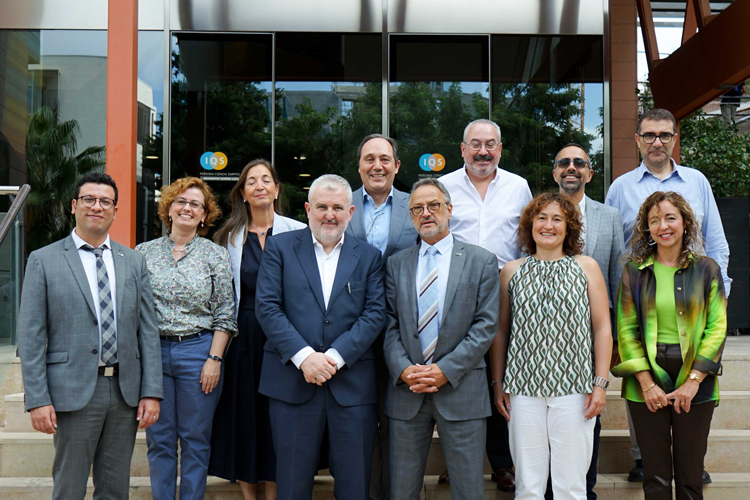IQS will be the first center in the Iberian Peninsula to have a Demo laboratory with the Japanese manufacturer of Nuclear Magnetic Resonance equipment JEOL.
IQS will be the first university in the Iberian Peninsula to have a Demo laboratory, thanks to the Japanese manufacturer JEOL’s nuclear magnetic resonance instrument. The new IQS-JEOL NMR platform will be equipped with a series of powerful instruments that represent the state of the art of this powerful technology. Izasa Scientific, the supplier of JEOL instruments in Spain, also participated in the launch of the agreement. The new infrastructure will involve the incorporation of IQS’s university laboratories into the Japanese multinational’s global network of benchmark NMR laboratories.
The agreement was recently made through a partnership contract between the heads of the three organizations: Salvador Borrós, Director of IQS; Bruno Achard, Managing Director of JEOL Europa; and Carlos Arribas, General Manager of Izasa Scientific.This alliance forms part of the IQS initiative to create a benchmark NMR laboratory to promote scientific research and technology transfer. In addition to the acquisition of the new instrument, the partnership agreement includes the contribution by the three entities to raise awareness and promote this type of joint business-university platform to support synergies with this spectroscopic technique, one of the world’s most powerful for determining molecular structures. This aspect is crucial in understanding complex chemical and biological phenomena.
In addition, the agreement also establishes the launch of a series of annual demonstrations and presentations by JEOL, the organization of an annual JEOL-IQS NMR Summer School with a scientific programme aimed at training and guiding multiple users on the techniques for the latest advances with these instruments, collaboration with the European Demo Centre (UK) in the adaptation of experiments and the development of new NMR sequences, and the organization of various events such as workshops and user meetings at the IQS campus.
Cutting-edge technology
The future platform will include two state-of-the-art spectrometers with “High Tech” technologies in terms of digital signals and high frequencies. More specifically, it includes the provision of a 400 MHz hybrid system for JEOL liquids/solids and a 600 MHz system equipped with a nitrogen-cooled probe.
The first 400 MHz spectrometer will have a hybrid use of solution NMR and solid-state NMR. Therefore, it will be equipped with the “Royal HFX” probe, which is especially versatile within the context of the pharmaceutical industry, the “3.2 mm HXMAS probe” that enables measuring samples in solid state (latest generation materials, food samples, etc.), and an automatic sample changer that will make it possible to use both for teaching and research work.
The second 600 MHz spectrometer, dedicated more specifically to research, will be equipped, in addition to the “Royal” room temperature probe, with a cryogenic probe cooled with “SuperCool” liquid nitrogen that will make it possible to reach very high sensitivities in a wide range of cores, a particularly interesting feature in biomedical research or in the analysis of biological samples.










